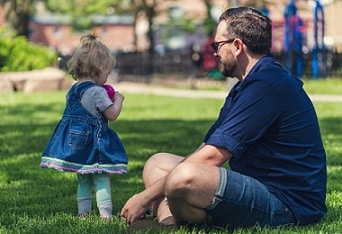 Endoculturation , also known as enculturation or inculturation , is the process that is carried out when a person integrates into a culture with which they come into contact . The concept can also be linked to the cultural integration of a group of subjects or a community into a society.
Endoculturation , also known as enculturation or inculturation , is the process that is carried out when a person integrates into a culture with which they come into contact . The concept can also be linked to the cultural integration of a group of subjects or a community into a society.
When an individual is born, the enculturation process begins to develop. This mechanism is both conscious and unconscious and involves internalizing the behavioral norms and values of the group to which we belong.
Enculturation is driven by older human beings , who invite new generations to adopt more traditional ways of thinking. That “invitation” , in many cases, works as a pressure or even an obligation.
Thanks to enculturation, the culture of a given society maintains numerous stable features over the passage of time. This means that there is a characteristic lifestyle that is preserved, despite the modifications that occur as the story progresses.
It is notable, however, that enculturation does not explain the wide range of ways of living that exist today. The intergenerational transmission of rules and customs is not always precise or effective, and new generations also establish innovations and changes. Thus, despite enculturation, there are current habits that are different and even opposite to others from past decades.
An example of enculturation is the interest in soccer that the majority of children in Argentina register. This phenomenon can be explained by the love of their parents and grandparents for this sport, by its dissemination in the media and by other factors. In Canada , to mention another nation, this does not happen since soccer does not have as much cultural relevance.
 It is important to note that enculturation is not inherently positive or negative for a society, but rather the characteristics of its impact depend on the way in which it is implemented and the response of those who receive it. For example, when one generation tries to transmit to the next its taste for an activity that includes the mistreatment of animals, enculturation serves to perpetuate this injustice; Therefore, if young people continue with the customs of their elders, the result is negative.
It is important to note that enculturation is not inherently positive or negative for a society, but rather the characteristics of its impact depend on the way in which it is implemented and the response of those who receive it. For example, when one generation tries to transmit to the next its taste for an activity that includes the mistreatment of animals, enculturation serves to perpetuate this injustice; Therefore, if young people continue with the customs of their elders, the result is negative.
However, if it were not for enculturation, each generation would have to start from scratch in all aspects of its development, including issues of health care, nutrition, games and language. This shows us that it can be very positive if it is used to guide new citizens in their intellectual growth, teaching them to communicate with the tools that have been perfected for centuries. In this way, the process should always yield better results than in the previous generation.
It is known that in each period of our development we learn more about the world, and in this process the importance of socialization stands out: generally, we begin living with our parents or with other adults who help us learn the basics of life. life in society, and later we establish ties with our neighbors, schoolmates and teachers, to form friendships and walk our own path. Of course, the media significantly influence enculturation, since they disseminate at all times the norms and customs in which the vast majority of the population is part of.
As mentioned above, the reaction of the person who receives these precepts is fundamental: not all of us respond in the same way to the same teaching. There are examples in all cultures of people who, after an upbringing based on violence, oppose it and seek a just path.
